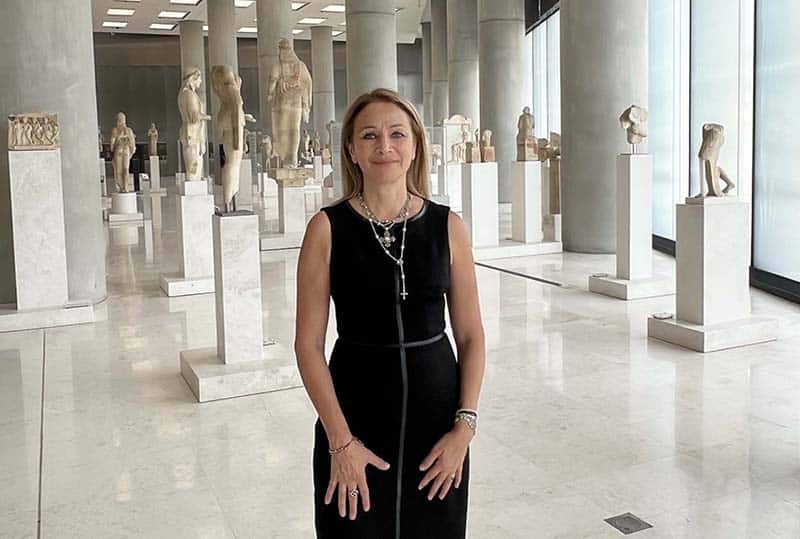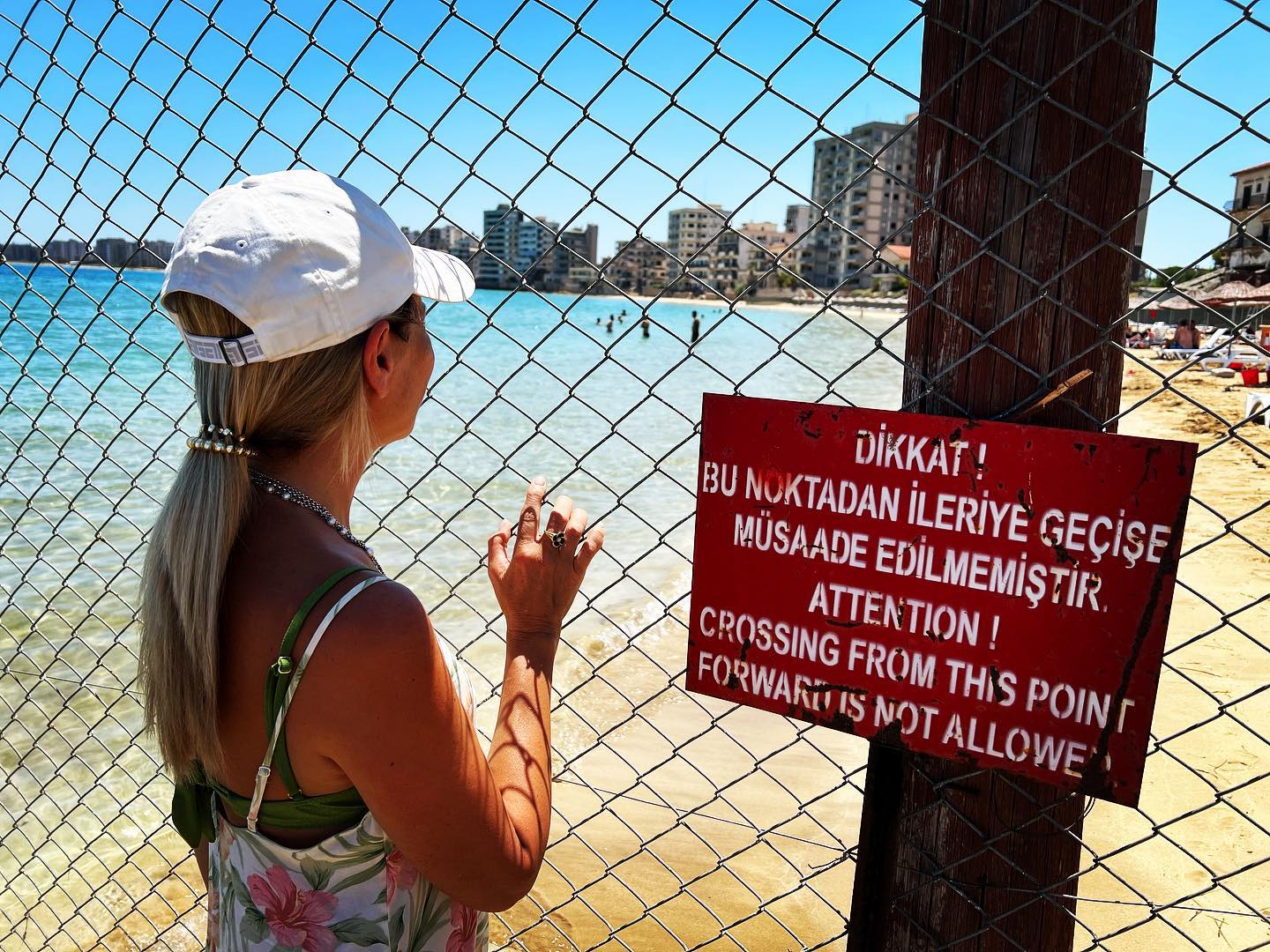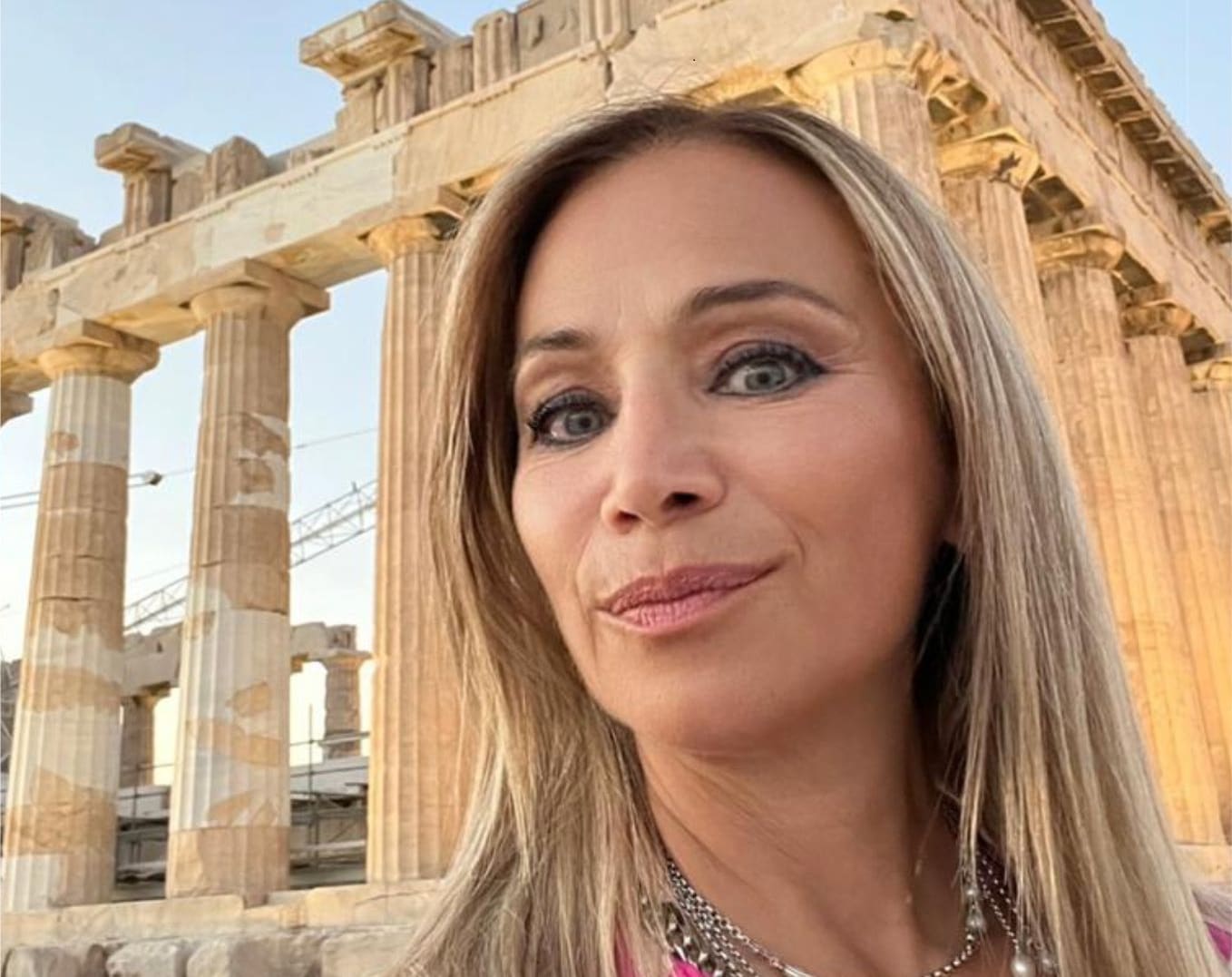Returning the Parthenon marbles to their place of origin and the Cyprus problem are the two issues that consume one campaigner finds PAUL LAMBIS
The Acropolis Research Group has been lobbying for the return of the Parthenon Sculptures to Greece for over six years. Formed from two committees, Australian and British, both of which are members of The International Association for the Reunification of the Parthenon Sculptures, the Acropolis Research Group consists of nine seasoned Parthenon campaigners.
“Our mission is to support the Hellenic Government’s efforts, by utilising mainstream media and social media in the awareness campaign, and to support the mechanisms in place for a just resolution,” co-founder of the Acropolis Research Group Elly Symons said.
“The vast majority of the international community is aligned with the reunification cause.”
Symons, who was born in Australia, is also the Vice President of the Australian Parthenon Committee, which was established over 30 years ago by a group of like-minded people who share her passion to resolve the long-standing issue. “We hold lectures, meet politicians, publish articles and remain active on social media, continuing our work towards a just resolution,” she said.
Originally from Melbourne, but now residing in Athens, Symons found herself drawn to Greek and Cypriot history at a young age and has dedicated her life to two key issues: the Cyprus Problem and the Parthenon Sculptures.
“My father’s family is from the village of Agros in Pitsilla, while my mother’s family are from the Greek island of Ithaki,” Symons said.

In the Acropolis museum
Both sides of her family owned restaurants and cafés in Melbourne central business district’s Greek sector, which was home to the Greek and Cypriot communities’ main clubrooms.
“The Greek and Cypriot diaspora communities had very strong roots at the time, and even to this day,” she told the Cyprus Mail. “The first Greek club was established in 1897, allowing Australians of Hellenic descent to maintain their cultural traditions while also assimilating extremely well in the Australian community.”
Symons referred to the Greeks as hospitality pioneers because they were responsible for many new concepts in food production and service. “Some of the best cafés and restaurants in Melbourne were owned by Greeks and also greengrocers as well as fish and chips shops,” she added.
She chose to study business and economics and began her career at several consulting firms. However, after marriage and having children, Symons decided to pursue a degree in classics and archaeology, as well as a degree in psychology.
“While I still manage investments and finance, my real love is the ancient history of Greece and Cyprus and that is why I spend much of my time promoting Greek and Cypriot culture and history,” she explained.
Living in Athens for the past five years has made Symons feel closer to her cultural heritage, “as every day I am surrounded by the rich history of Greece.
“Our ancestors’ deeds have a profound impact on who we are as Hellenes today – we cannot escape our DNA. I take my responsibility as a custodian of our culture very seriously, which is why I have chosen to campaign for the return of the Parthenon marbles to Greece.”

Visiting Varosha
Despite being young and residing in Australia at the time, the Turkish invasion of Cyprus in 1974 had an enormous effect on her. Many refugees fled to Australia in the aftermath of the invasion, with her father, being one of the founding members of Melbourne’s Cypriot community, which held numerous fundraisers to support the refugees and their families.
Symons’ work with the Acropolis Research Group has helped shape her belief system, which is oriented on community and civic responsibility. “If something is worth doing, then one must do it well,” she said. “This was instilled in me by my father, who was my greatest inspiration and spent most of his life helping others. I wholeheartedly believe that serving others is one of life’s most meaningful pursuits.
“The Parthenon Sculptures must be reunified in the purpose-built Acropolis Museum in Athens,” she added. “Lord Elgin’s theft of the marbles in 1801 was a destructive act of avarice during a period where Greece was occupied by the Ottomans.
“The marbles do not belong in a gloomy gallery in the British Museum but in the glorious Attic light and in Athens where they were conceived, carved and created some 2,500 years ago.
“The main obstacle is the British Museum Act of 1963, which requires a clause to be changed to allow deaccession of items from the collection. It requires political will, a vote in the UK Parliament, and some politicians who are willing to do the right thing.
“Very few people believe that they should not be returned to Greece and their arguments are spurious and flimsy.”
Symons said Greece’s current prime minister has prioritised this issue, and negotiations have taken place over the previous year, which she believes is a “promising pathway.”
Anyone interested in supporting the campaign is encouraged to follow the Acropolis Research Group on social media, “and join the discussion.
“The more awareness of the issue is spread, the better we can influence the decision makers to return the Parthenon Sculptures to their rightful home in Athens, where they belong.”







Click here to change your cookie preferences